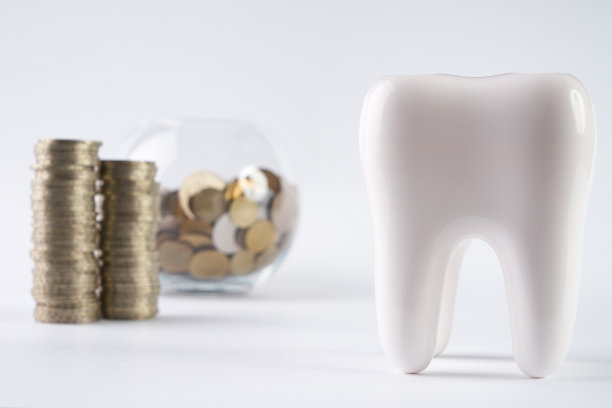The Comprehensive Guide to Understanding Dental Implant Treatment and Its Lifelong Benefits for Oral Health
Summary: Dental implants have revolutionized the way we approach tooth loss, offering a durable, lifelike solution that promotes oral health and enhances quality of life. This comprehensive guide delves into the intricacies of dental implant treatment, examining its process, advantages, long-term benefits, and maintenance requirements. Understanding these aspects can empower patients to make informed decisions about their oral health. Furthermore, the lifelong benefits of dental implants extend beyond aesthetics, significantly contributing to overall oral health, functionality, and self-confidence. By unraveling the complexities of dental implants, this guide aims to provide valuable insights to prospective patients and dental professionals alike.
The Dental Implant Process Explained

The dental implant process begins with a thorough consultation between the patient and the dentist. During this initial visit, the dentist evaluates the patients oral health, takes necessary imaging, and discusses the patients overall goals and expectations. This step is crucial, as it helps determine the most suitable treatment plan tailored to individual needs.
Next, the actual implant placement involves a minor surgical procedure where the implant, usually made of titanium, is inserted into the jawbone. This process is often performed under local anesthesia or sedation to ensure the patient’s comfort. After placement, a healing period is necessary for the implant to fuse with the bone, a process known as osseointegration. This period typically lasts several months and is critical for the overall success of the treatment.
Once osseointegration is achieved, an abutment is attached to the implant, serving as a connector for the final restoration—usually a crown or bridge. The choice of restoration is dictated by the number of missing teeth and the patient’s aesthetic preferences. The installation of the final crown concludes the treatment process, providing both functional and cosmetic improvements.
Advantages Over Traditional Options
One of the key advantages of dental implants over traditional dentures or bridges is their permanence. While dentures can slip or require adjustment, implants offer a fixed solution that mimics the natural tooths structure. This stability significantly enhances chewing efficiency and overall oral function.
Dental implants also contribute to preserving jawbone density. When a tooth is lost, the underlying bone may begin to deteriorate due to lack of stimulation. Implants provide the necessary support needed to maintain this bone structure, preventing the sagging appearance often associated with tooth loss and maintaining facial aesthetics.
Moreover, dental implants are easier to maintain. Unlike dentures, which require cleaning solutions and special care, implants can be cared for just like natural teeth. Regular brushing, flossing, and dental check-ups suffice, and no dietary restrictions are imposed, enabling patients to enjoy their favorite foods without concern.
Long-Term Health Benefits
The long-term health benefits of dental implants extend well beyond mere aesthetics. A significant lifespan of dental implants—often exceeding 10 years with proper care—means they can effectively serve as a long-term solution for missing teeth. This durability translates to better functionality and comfort throughout a patients life.
Moreover, implants help maintain proper alignment of neighboring teeth. When a tooth is missing, adjacent teeth may shift into the empty space, leading to misalignment. Implants fill this gap, ensuring that the alignment and integrity of the dental arch are preserved over time.
Additionally, the confidence boost that comes with having a complete smile can impact mental health positively. Patients often report increased self-esteem and a more vibrant social life following their dental implant treatment, highlighting the significant psychological benefits that accompany improved oral health.
Maintenance for Longevity
While dental implants are resilient, maintenance is essential for ensuring their longevity. Routine dental visits are crucial for regular monitoring of the implants and surrounding gum health. Dentists can identify any issues early on, such as signs of infection or implant failure.
Personal oral hygiene plays a pivotal role in the longevity of dental implants. Patients should adhere to a rigorous dental care regime that includes brushing twice daily, flossing, and possibly using mouth rinses recommended by dental professionals. This proactive approach minimizes the risk of peri-implant diseases, which can threaten the stability of the implants.
Furthermore, lifestyle choices such as quitting smoking or reducing alcohol intake can significantly affect the success of dental implants. Smokers are at a higher risk for complications post-surgery; hence, adopting healthier habits can lead to better outcomes and prolong the lifespan of dental implants.
Summary:
Dental implants represent a transformative option for individuals facing tooth loss, offering unparalleled benefits that enhance both functionality and aesthetics. Their comprehensive nature—from the initial consultation through to the lifetime of care—ensures patients can restore their smiles and maintain robust oral health effectively. By understanding every aspect of dental implants, patients can make empowered decisions about their treatment options.
This article is compiled by Vickong Dental and the content is for reference only.



